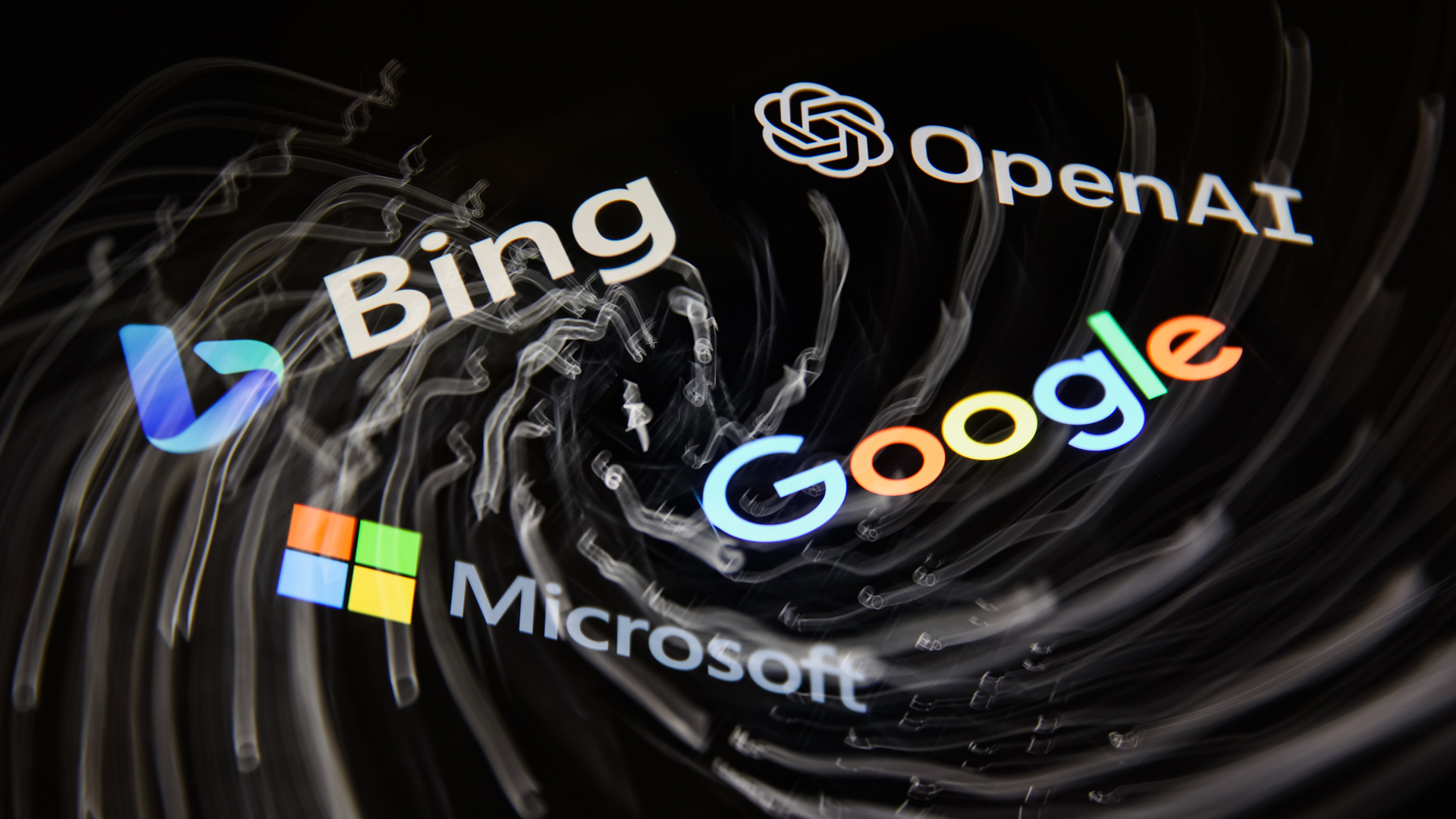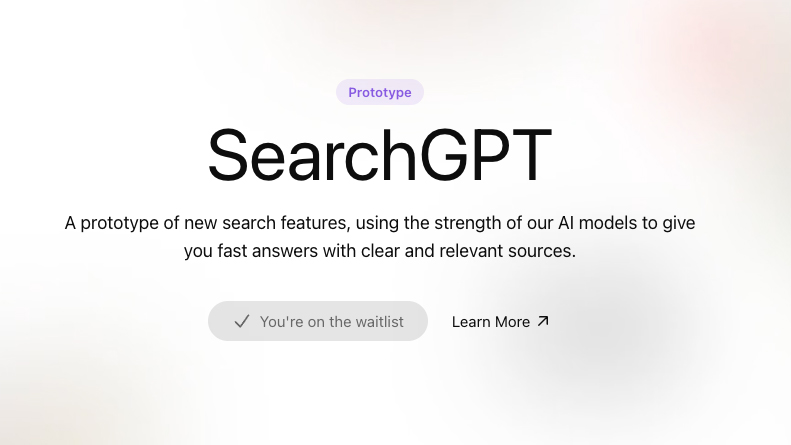OpenAI unveils SearchGPT and prepares to take on Google
A new way of generative search is here – if you can get on the list

After months of speculation, OpenAI's search engine, SearchGPT, is here but only as a prototype and in limited testing. Even so, it's a watershed moment for the generative AI company and may represent the first substantial challenge to Google's Search engine dominance.
OpenAI announced that it's testing SearchGPT in a blog post on Thursday. It calls it a "temporary prototype" and only posts a waiting list for access. Even so, we're learning a lot about the kind of results you can expect from SearchGPT.
The main screen will start with an open prompt box pre-filled with the phrase, "What are you looking for?" It will accept natural language queries, which is not unlike Google, but unlike the world's most popular search engine, SearchGPT will accept follow-up queries.
One example is a search for "Best tomatoes to grow in Minnesota" and then a follow-up query, "Which of these can I plant now?" OpenAI implies that the context will be maintained through additional queries, a feat not currently possible with Google or Microsoft's Bing search engine.
OpenAI's development of a search engine is notable, considering that the initial version of its Large Language Model (LLM)-based ChatGPT did not have access to the web for real-time information. Its data training stopped somewhere in 2021.
SearchGPT will, by contrast, according to OpenAI, "combine the strength of our AI models with information from the web to give you fast and timely answers with clear and relevant sources."

OpenAI does make it clear that SearchGPT will cite its sources and include direct links to them, something that it's not always clear that Google's new Gemini AI-based search results are doing. There is a sense that OpenAI is trying to play the role of a good search engine citizen by promising to help users "discover publishers' sites and experiences." Considering how many publishers and content creators are currently suing OpenAI for allegedly scrapping their data to train its models, it's a notable stance.
Sign up for breaking news, reviews, opinion, top tech deals, and more.
The AI company is already lining up publisher partners like The Atlantic.
"AI search is going to become one of the key ways that people navigate the internet, and it's crucial, in these early days, that the technology is built in a way that values, respects, and protects journalism and publishers. We look forward to partnering with OpenAI in the process, and creating a new way for readers to discover The Atlantic," said The Atlantic CEO Nicholas Thompson in the SearchGPT blog post.
Perhaps as an end run around current data scrapping litigation, OpenAI points out that "SearchGPT is about search and is separate from training OpenAI’s generative AI foundation models," and adds publisher results will be included even if they do not agree to OpenAI's generative training.
SearchGPT is also promising more visual search results that appear to look little like the ones you might expect from Google or Bing.
SearchGPT will be a standalone AI search engine, but OpenAI plans to eventually integrate it into ChatGPT, which may make that platform far more powerful and useful.
The arrival of SearchGPT comes just weeks after Google integrated Gemini Generative Search results at the top of many search results pages as AIO overviews. It was a move met with some chagrin by those who rely on Google for quick, no-nonsense results and by publishers who worry their results and links are getting pushed further down on the page. Google was likely spurred partly to make the AI move by Bing, which owns first-mover status in the AI search space with generative AI based on OpenAI's ChatGPT. In a way, it feels like AI search has come full circle. The question remains, though, is this what people want from search?
You can sign up for the waitlist (you need a ChatGPT account) here.
You might also like

A 38-year industry veteran and award-winning journalist, Lance has covered technology since PCs were the size of suitcases and “on line” meant “waiting.” He’s a former Lifewire Editor-in-Chief, Mashable Editor-in-Chief, and, before that, Editor in Chief of PCMag.com and Senior Vice President of Content for Ziff Davis, Inc. He also wrote a popular, weekly tech column for Medium called The Upgrade.
Lance Ulanoff makes frequent appearances on national, international, and local news programs including Live with Kelly and Mark, the Today Show, Good Morning America, CNBC, CNN, and the BBC.